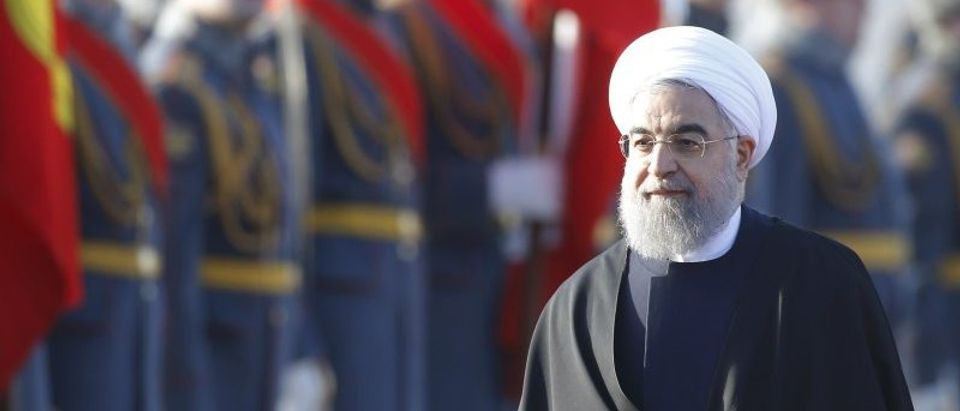Iran’s presidential election will be held on May 19th. Many in the West are interested to know if the so-called “reformist” Hassan Rouhani, the incumbent, will be reelected, or will he be replaced by a candidate of the “hardliners”? And will Iran head towards real change following this presidential election?
Ever since the current theocracy rose to power back in 1979, the mullahs established an Islamic caliphate or “Islamic state” and brought to life one of the most ruthless and repressive dictatorships in modern history. Despite such a characteristic, they continue to hold presidential elections.
The 38-year history of this regime and structure clearly shows nothing will change in this theocracy with Rouhani being reelected, or a new face like Ebrahim Raisi, the new candidate who was appointed as a member of the “Death Commission” tasked to supervise the 1988 massacre of thousands of political prisoner, taking over.
The question is why don’t elections render any changes in Iran’s religious dictatorship, and why does this regime even resort to holding elections?
This regime’s own officials have time and again acknowledged these so-called polls bear no legitimacy. The remarks of a Mesbah Yazdi, a senior cleric in this regime’s establishment, are quite interesting.
“In this Islamic state the people’s vote has no religious or legal credibility. Neither in determining the country’s political structure or defining the constitution, nor electing the president, Assembly of Experts or supreme leader. The only legal credibility criteria is the supreme leader’s consent… the state’s credibility does not rely on the people’s consent. In fact, the people’s vote has no impact or role in the state’s legitimacy,” he said.
Such remarks are the result of this regime’s characteristic and the structure being founded on the velayat-e faqih, known as the absolute rule of the clergy. A simple glimpse at this system proves no change is possible. The supreme leader is the ultimate power and the president can be described as a symbolic post.
Absolute dictatorship
The velayat-e faqih is a dictatorship relying on religion for its legitimacy, considering its rule being completely above the law. The authority and the structural organization provides velayat-e faqih the final word in all state affairs, and no organ has the right to question his orders. This represents an absolute rule summarized in one individual.
Power and authority
Article 110 of Iran’s constitution defines the most important aspects of the supreme leader’s powers and authority. Commander-in-chief; authority to launch wars and declare peace; order to rally all armed forces, far beyond a draft; confirming the president after the people’s vote; sacking the president according to the state’s interests; appointing, sacking and accepting the resignation of members of the Guardian Council, a body of 12 clerics directly and indirectly selected by the supreme leader himself; appointing and sacking senior judiciary officials, head of state TV and radio, chairman of the armed forces joint chiefs of staff, commander of the Revolutionary Guards, senior military and security commanders; and determining the state’s general policies.
Guardian Council
The Guardian Council is known as the supreme leader’s arm in controlling and supervising the executive and legislative branches. All candidates registering to take part in any of the regime’s presidential and parliamentary elections must be vetted by this body. As a result, no individual without the supreme leader’s blessing can take part in these so-called elections.
All parliamentary bills must be approved by the Guardian Council to become law. The president, after being vetted by the Guardian Council, must be confirmed by the supreme leader’s signature.
Why does Iran’s religious dictatorship hold elections?
In Iran’s velayat-e faqih system there is no true meaning of a democratic election. It is more a selection process supervised completely under the watchful eye of the supreme leader. There are no democratic political parties in this establishment. There are only various factions amongst those completely loyal to the velayat-e faqih system, and each current is seeking their own interests in this establishment.
Regime officials acknowledge how two objectives are sought in holding elections.
- Providing the people a sense of having a role in their religious state
- Misusing the “people” and “elections” as a tool to provide legitimacy for their absolute dictatorship in order to silence dissidents with a democratic posture.
“Elections render two results,” according to Yazdi. “First, making the people feel they have a role in the religious state… second, to disarm our opponents as they resort to provocative propaganda aiming to canvas the Islamic state as a dictatorship.”
As a result, this regime’s fundamental structure cancels all possibility of change from within. Labeling this regime’s factions as “reformists” or “hardliners”, while they have shown their absolute loyalty to the establishment, is nothing but a hoax.
Shahriar Kia is an Iranian dissident and a political analyst writing about Iran and the Middle East. He is the member of the Iranian opposition and he graduated from North Texas University. He tweets at @shahriarkia.


